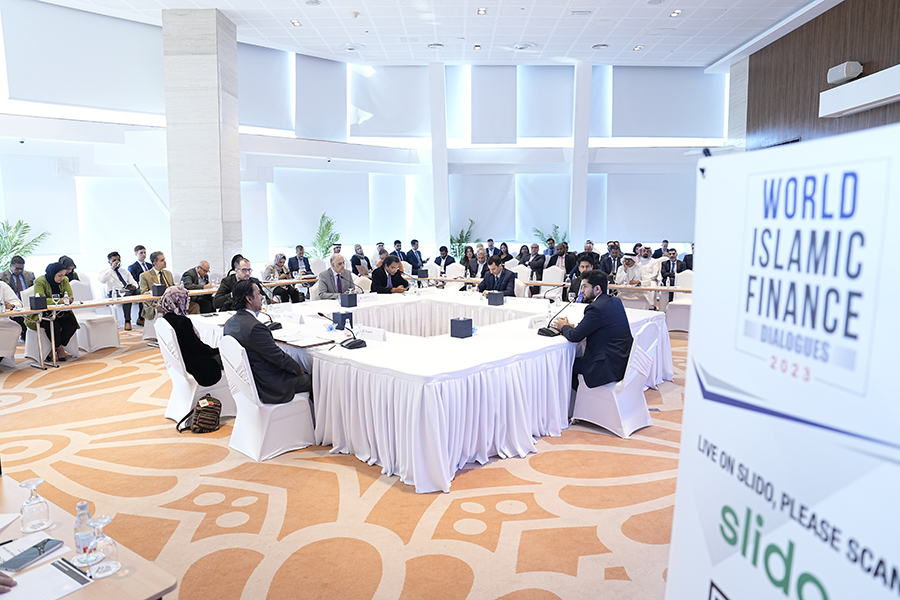Regulating Telemedicine in Bahrain
Following the pandemic, our everyday routines experienced a significant shift. We transitioned to remote work, home workouts, and staying in, trying to minimize in-person interactions whenever possible. Consequently, this shift has impacted various aspects of our lives, including work, education, socialization, and even healthcare. Medicine is one of the fields that had a major shift. Telemedicine has surfaced as a prominent solution, allowing individuals to receive remote consultations, prescriptions, and medical services easily. Telemedicine can be defined as using telecommunications technologies to support the delivery of all kinds of medical, diagnostic, and treatment-related services by doctors. Telemedicine was limited before the pandemic, held back by regulatory barriers and hesitation from patients and providers. There is a growing importance of telemedicine globally as the preferred method of healthcare delivery; therefore, governments have been compelled to adapt by implementing regulatory laws and guidelines.
Regulatory Framework in Bahrain
In Bahrain, the governing bodies have introduced a series of decisions, procedures, and guidelines aimed at regulating the use of telehealth services. These regulations include but are not limited to the following:
- Legislative Decree No. 20 of 2015 amending Legislative Decree No. 18 of 1997 relating to the Organization of the Pharmacy Profession and Pharmaceutical Centers;
- Resolution No. 63 of 2019 relating to Requirements and Procedures for Practicing Pharmacy Professions and Licensing of Pharmaceutical Facilities;
- Supreme Council of Health’s Resolution No. 2 of 2019 relating to the Technical and Engineering Requirements of Healthcare Facilities;
- National Health Regulation Authority (“NHRA”) Guidelines on the Health Requirements, Technical Standards, and Safety Requirements to be available in the premises and fittings of Healthcare Facilities (2019);
- NHRA Telemedicine Dispensing Procedure (2020); and
- NHRA Telemedicine Dispensing Procedure (2023).
Telemedicine Guidelines
Telemedicine is permitted per NHRA. NHRA initially issued a Telemedicine Dispensing Procedure in May 2020 during the pandemic, followed by an updated version in June 2023 (“Guidance”), which aims to act as a practical guide to licensed medical practitioners in public and private pharmacies, encouraging them to incorporate telemedicine in their regular practice. This article provides a brief overview of the recent NHRA Telemedicine Dispensing Procedure (2023). The Guidance outlines the procedures, prescription requirements, and permissible medications for telemedicine consultations.
Benefits of telemedicine
Telemedicine is not aimed at replacing in-person visits. However, it seeks to reduce the burden on hospitals. It comes in handy in cases where physical interaction with a medical professional is not necessary, such as regular check-ups and continuous monitoring. Telemedicine has several advantages, including but not limited to cost savings, convenience such as reduced waiting time for consultations, and the ability to provide care to people with mobility limitations such as those in rural areas or those who do not have access to a local doctor. Most importantly, it prevents the transmission of infectious diseases to providers and patients.
Procedure:
As per the Guidance, medical licensed practitioners may prescribe medicines via telemedicine only when they are satisfied that they have gathered adequate information about the patient’s medical condition and that it is in the patient’s best interest. Prescribing medicines without an appropriate diagnosis/provisional diagnosis will amount to professional misconduct.
The Guidance categorizes medications into three lists:
- List P (Pharmacy only): commonly used medicines for common conditions and medications necessary during public health emergencies.
- List POM (Prescription-only medicines): can be prescribed during the first telemedicine consultation and for follow-up purposes. The list comprises relatively safe medicines with low potential for abuse.
- Prohibited List: high potential for abuse, such as narcotics and psychotropic substances, cannot be prescribed via telemedicine.
Prescription Requirements:
To ensure accountability and patient safety, the Guidance specifies mandatory components of a prescription, including the name, specialty, and contact details of the prescribing doctor, as well as the patient’s name and ID number. The doctor must sign and stamp the prescription and include the prescription date.
Issuing a Prescription:
Licensed medical practitioners are required to issue prescriptions in compliance with NHRA policies and regulations. They may provide a photo, scan, digital copy, or e-prescription to the patient via email or any messaging platform.
In conclusion, Bahrain has witnessed significant regulatory updates with the introduction of specific laws, guidelines, and procedures by governing bodies such as NHRA. Telemedicine has become a viable and regulated option for healthcare delivery in the country. As telemedicine continues to evolve and integrate into the healthcare landscape, it is expected to play an important role in providing efficient and accessible healthcare services in Bahrain.
If you require more information on compliance requirements for healthcare providers offering telemedicine services and to avoid any legal implications, we recommend contacting one of our experienced lawyers who can assist.










